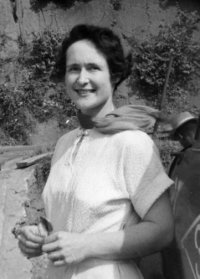Cultural Theory
“Between private, subjective perception and public, physical science there lies culture, a middle area of shared beliefs and values”
Douglas & Wildavsky, 1982:194
My desire to understand corporate culture in a broad way, rooted firmly in social anthropology, led me to the Grid/Group (or “Cultural Theory”) typology pioneered by Mary Douglas. I was fortunate to meet her several times before she passed away, and we worked on an application of Cultural Theory to organisational behaviour. I have attempted to bridge cultural theory with an epistemic and institutional approach to economics, and highlight some methodological parallels with Austrian economics.

Some of the examples of the usefulness of a Cultural Theory approach to organisational culture are internal prediction markets, and whistleblowing. In terms of the latter, I provide an explanation for why legislative and internal systems typically fail, and suggest ways to nourish a culture of dissent as a strategic advantage. My work on whistleblowing led to several trade journal articles and some media coverage.
I also believe that Cultural Theory can help to explain the fascinating social dynamics that occur in Office Christmas Parties. Just after the launch of ‘The Office‘ there was a fly on the wall documentary called ‘The Armstrongs‘. You can find some episodes on YouTube, but the pilot episode (filmed in 2003) isn’t available. After I blogged about the series I received a DVD through the post from one of the production team. This is important because it focused on the Christmas Party. It’s no coincidence that the high point of the UK series of ‘The Office’ was Tim and Dawn’s kiss, which occurred at the Christmas Party. And one of the best ever cinematic moments occurred during the Christmas Party scene in Tinker Tailor Soldier Spy. My ambition was to conduct an anthropological study of the Christmas Party. One day
Matthew Taylor, former head of the RSA, likes cultural theory. Notice the influence here:
I still have plans to run an MBA course called “Corporate Cultural Theory“. I am collecting cases and if I find sufficient interest (either from co-instructors, universities, or potential students) then I will pick it back up again. For an indication, see my 2007 article: “Towards a Corporate Cultural Theory“. It was published as a working paper by the Mercatus Center, and it also appeared in a Semiotics course on Cultural Theory.
- In July 2007 I organised a “Workshop on Cultural Theory and Management“, hosted by ESCP Europe (see here for the running order).
- In January 2011 I attended a conference on Cultural Theory in Leuven. Here are my remarks. My situation hasn’t changed.
